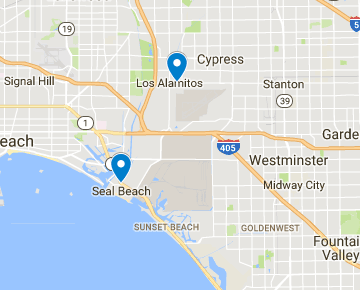Home › foot care › Preventing Plantar Fasciitis with Healthy Habits
Preventing Plantar Fasciitis with Healthy Habits
Plantar fasciitis is one of the most common causes of foot pain. Developing a few healthy habits can greatly reduce your risk of developing the condition.
Plantar fasciitis is one of the most common causes of orthopedic pain. It occurs when the thick band of tissue that connects your heel to your toes becomes inflamed. This band, which is called the plantar fascia, supports the arch of your foot in order to help you walk — so it can be quite debilitating when this band isn’t functioning at top form.
Luckily, plantar fasciitis is easy to treat and even easier to prevent. To take care of your plantar fasciitis, you should understand its causes so you can develop healthy habits to prevent it.
What does plantar fasciitis feel like?
The most common symptom of plantar fasciitis is pain on the bottom of the heel, although in some cases, pain occurs in the mid-foot area. Additionally, some patients report a “thick” feeling in their heel when they first experience flare-ups, described as a lump in their socks rather than pain in their heels.
Plantar fasciitis tends to occur in one foot at a time, but it’s not uncommon to have symptoms in both feet. The pain will usually be the worst in the morning when the foot is stiffest. Similarly, prolonged physical activity can cause a flare up, which is usually most intense right when the activity ends.
With plantar fasciitis, the pain tends to intensify over time. While at first your heel will just feel tender in the morning or after a long walk, people with advanced plantar fasciitis report having lingering pain throughout the day.
What causes plantar fasciitis?
Plantar fasciitis is usually caused by overstressing the plantar tendon. Some activities that stress this tendon are walking up and down hills, climbing stairs, running on your toes, or wearing high heels.
Some additional factors that can cause plantar fasciitis are structural foot issues (having very low or high arches), obesity or rapid weight gain, long distance running, prolonged time spent on your feet, or tight Achilles tendons.
How to Prevent Plantar Fasciitis
Sadly, there’s no instant cure for plantar fasciitis. Like many injuries, the best treatment is prevention. Here are a few healthy habits you can adopt to keep plantar fasciitis from developing:
Wear shoes with good support.
Stay away from high heels and make sure you wear good athletic shoes when you work out. You may want to talk to a doctor about adding inserts or orthotics. Additionally, try to avoid walking barefoot on any hard surfaces. Because plantar fasciitis is commonly felt in the morning when you first wake up, you should put on supportive footwear as soon as you get out of bed.
Lose weight.
Being overweight or obese puts pressure on the bottom of your feet, leading to tension that can cause plantar fasciitis.
Replace high-impact activities with low-impact ones.
Try swimming or cycling instead of running and jumping, as low-impact activities don’t put as much stress on your feet. Also, be sure to stretch after any workout. A post-workout stretch can loosen your calf muscles and reduce the risk of inflammation.
Focus on how you walk.
Although it sounds simple, strong walking form can be tremendously impactful. Relax your ankle and calves to release the muscle tension in your legs. Tension held in the quads and glutes can create unneeded pull on your plantar tendon. If you can, try to land evenly with your foot on each step. An even step will alleviate some impact on your heel and will keep your tendon relaxed.
Treatments and Resources
If you’ve taken all preventative measures but still develop plantar fasciitis, don’t worry. The acute pain is very treatable. Soaking feet in ice water can alleviate some discomfort. It can also be helpful to stretch your tendon by picking up small marbles with your toes.
If you are concerned about the health of your feet and ankles, you should schedule a consultation with the Alamitos-Seal Beach Podiatry Group. Our doctors are highly qualified and eager to help in a wide variety of sub-specialities, from treatment to prevention. Make an appointment today.
Request an Appointment
Fill out the form below to reach Alamitos – Seal Beach Podiatry Group, or call Los Alamitos: (562) 203-6151 or Seal Beach: (562) 242-1559 for immediate assistance.
By submitting, you agree to our privacy policy.






